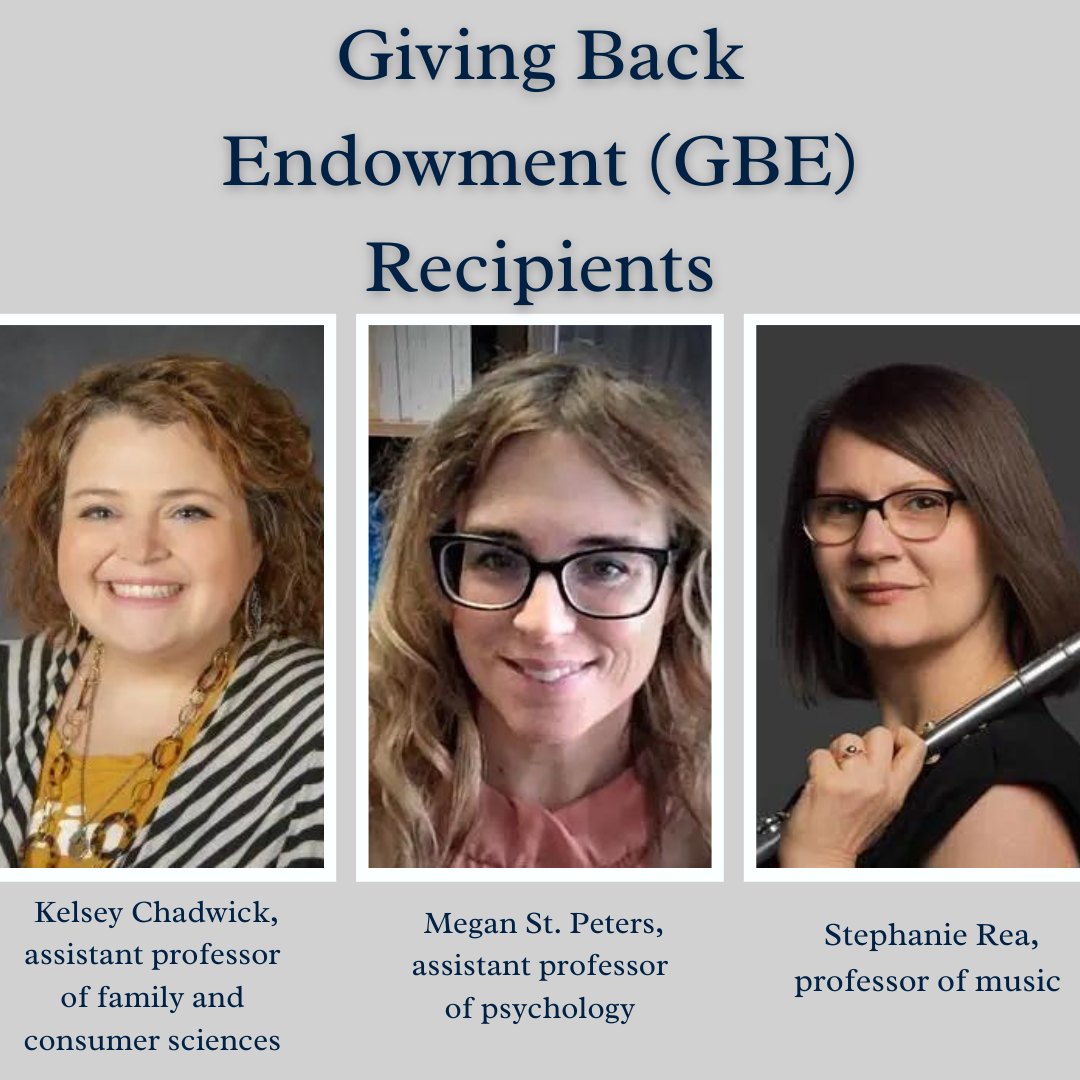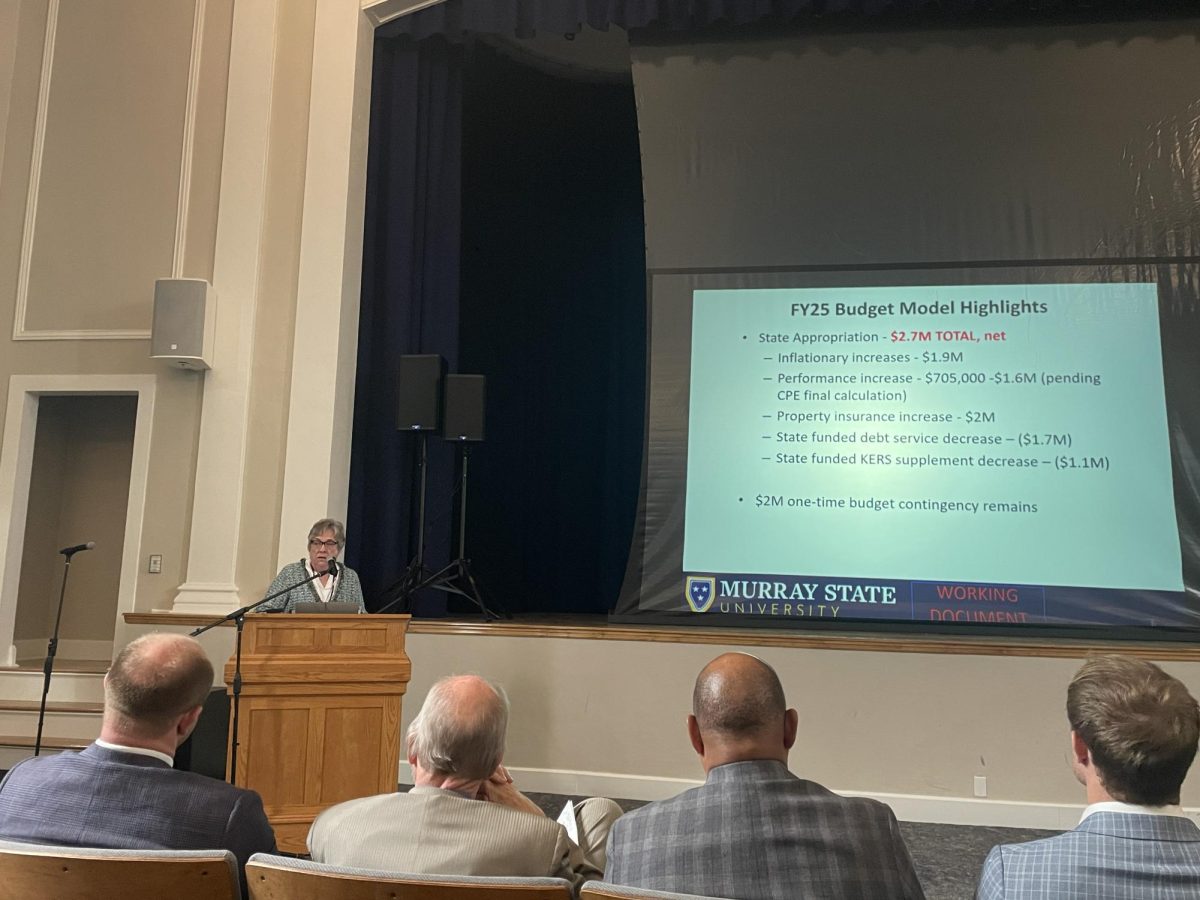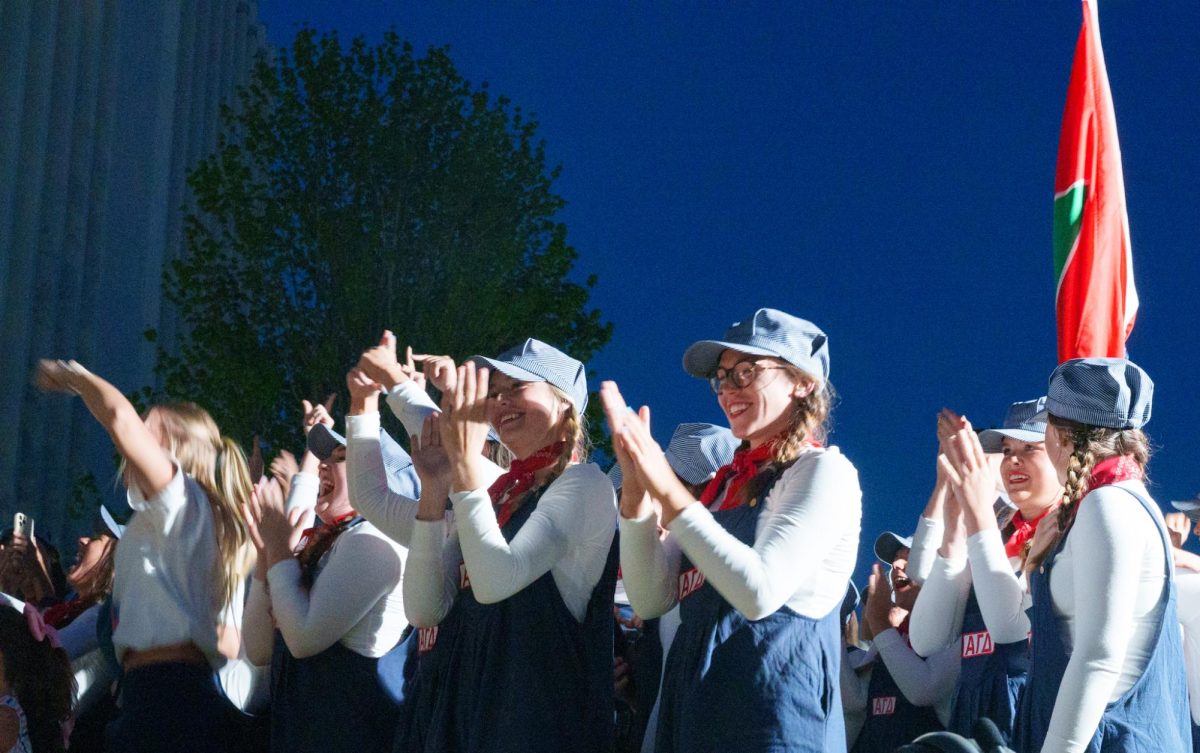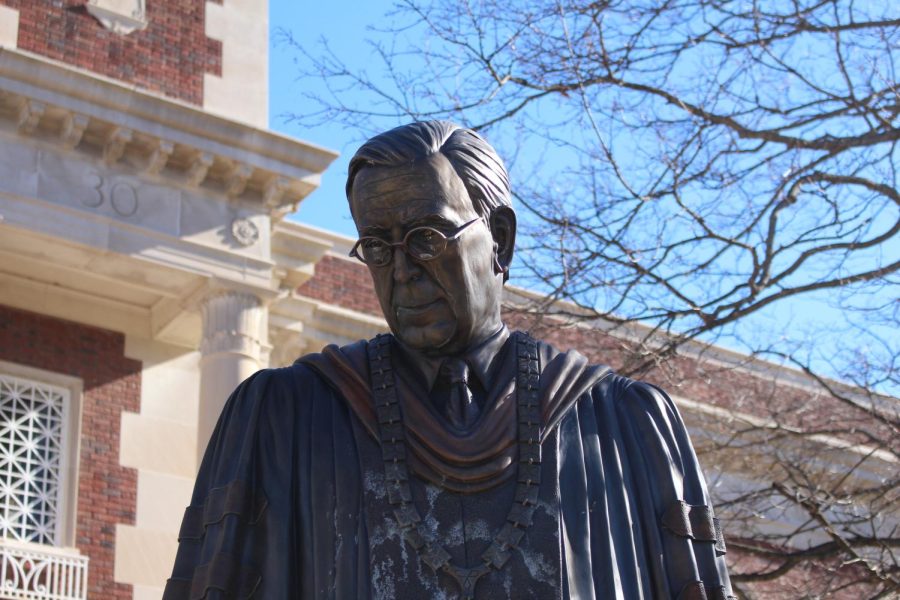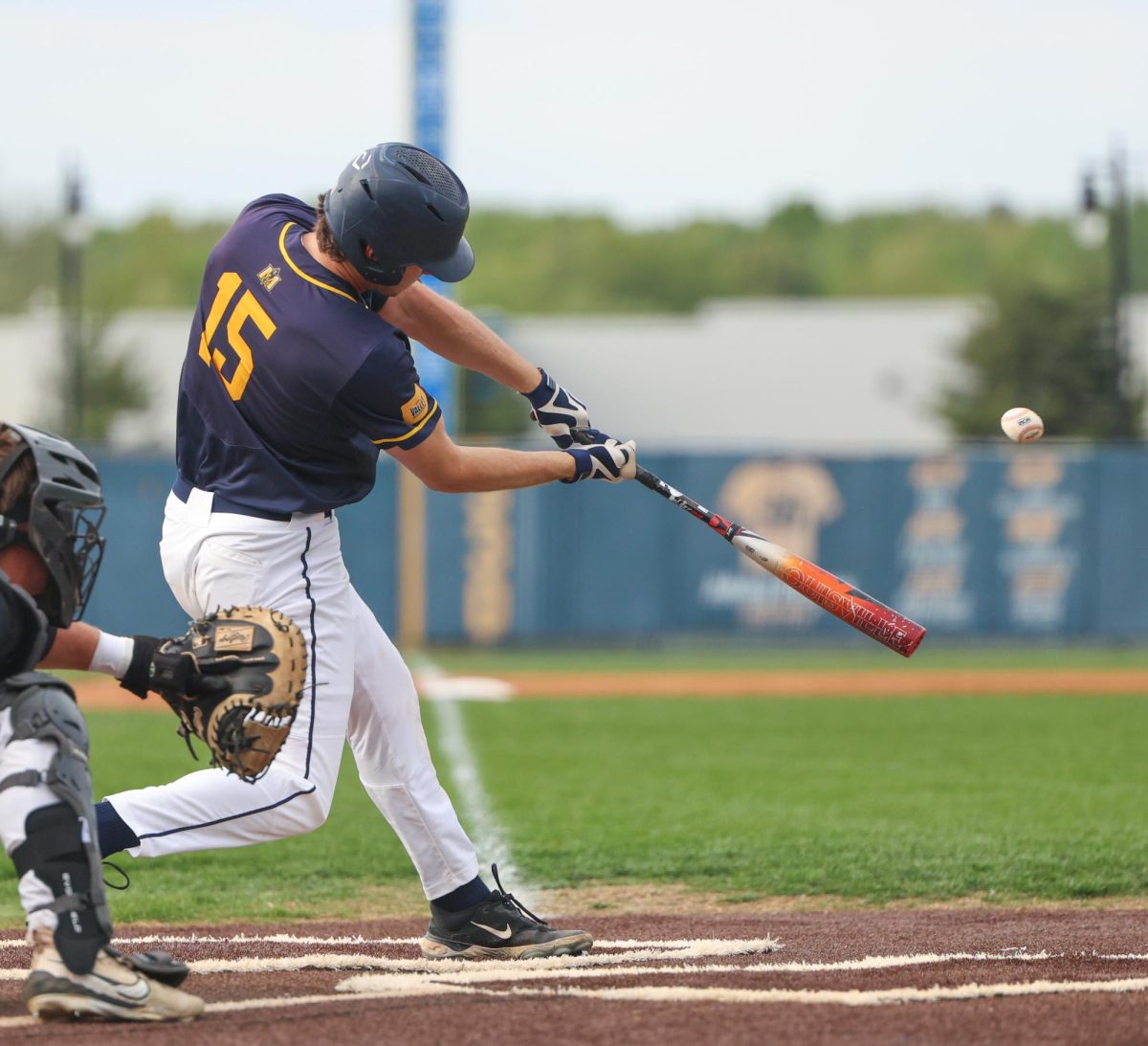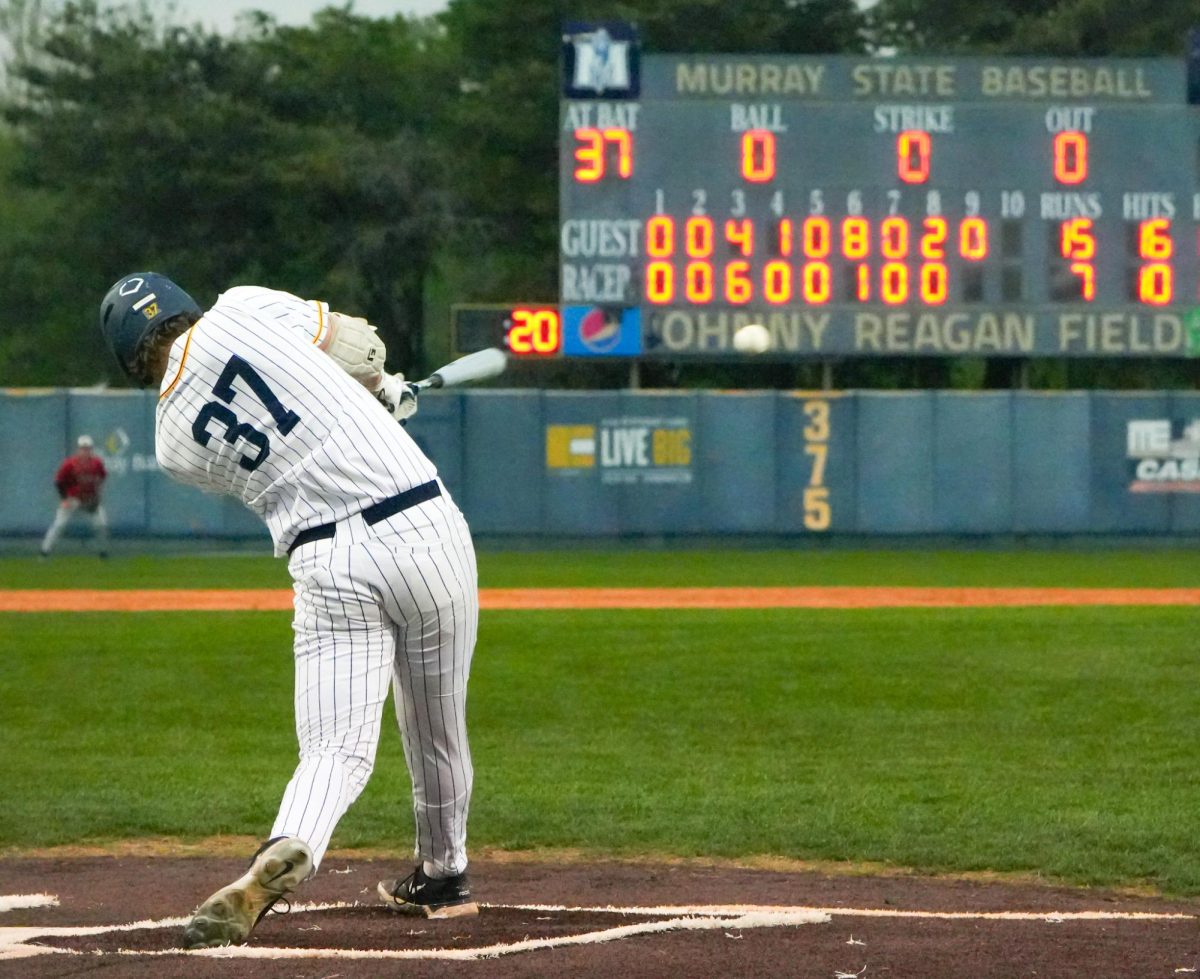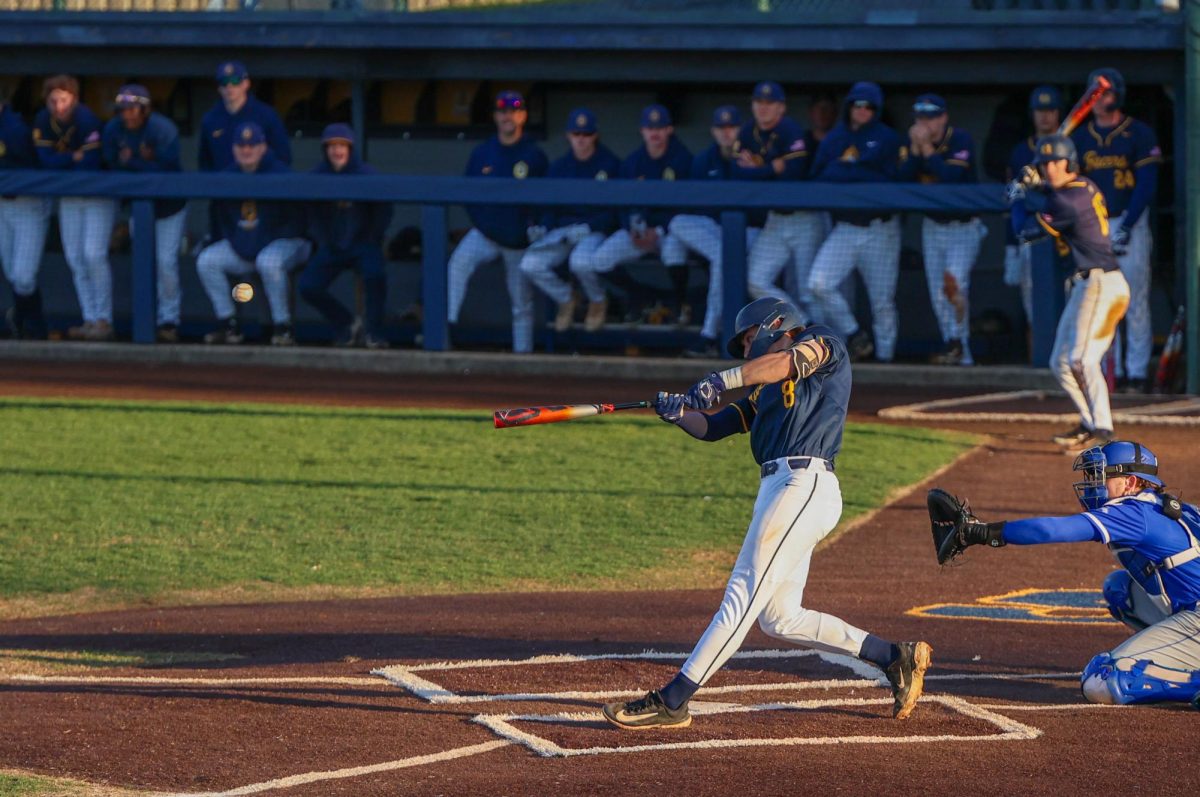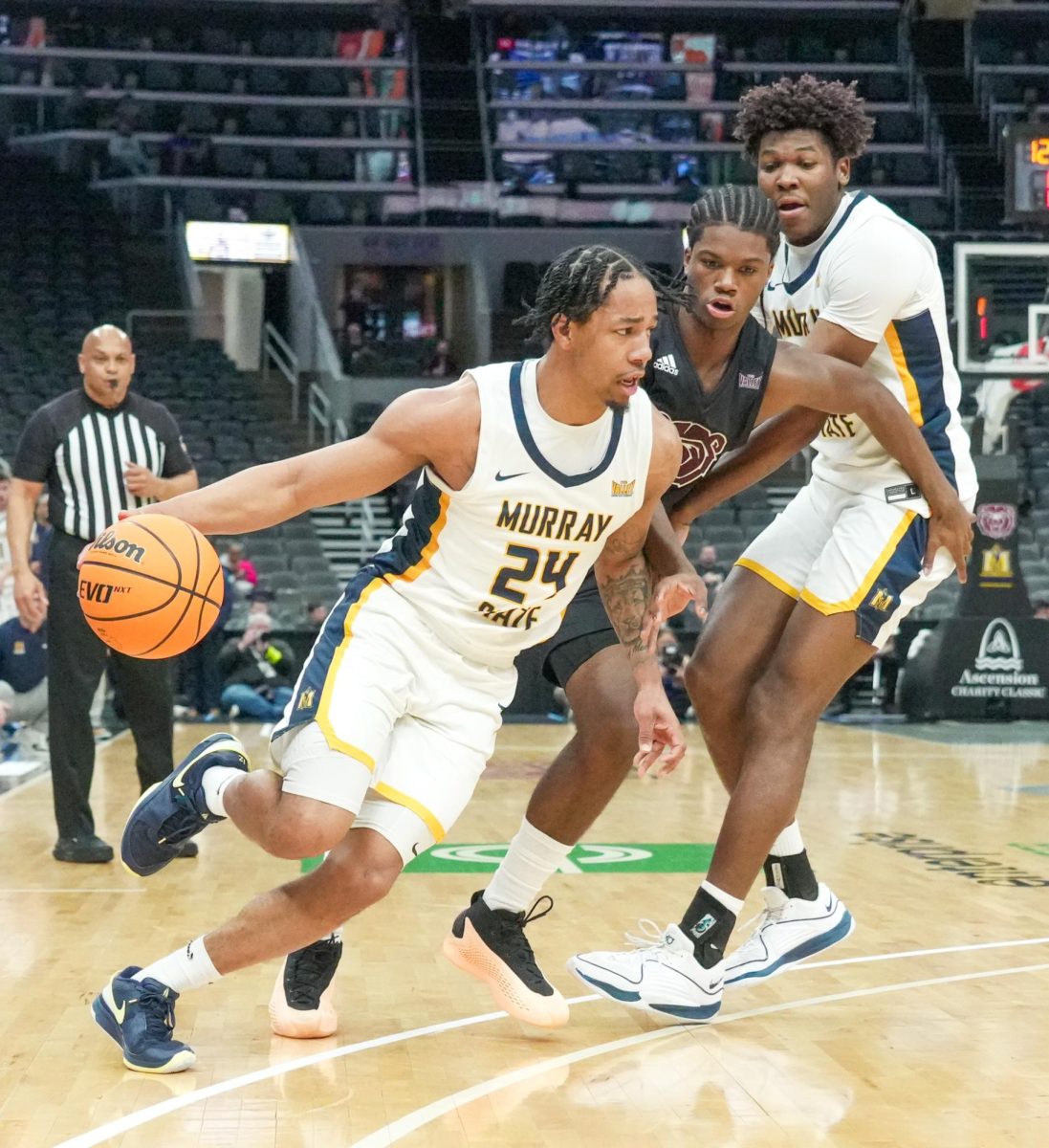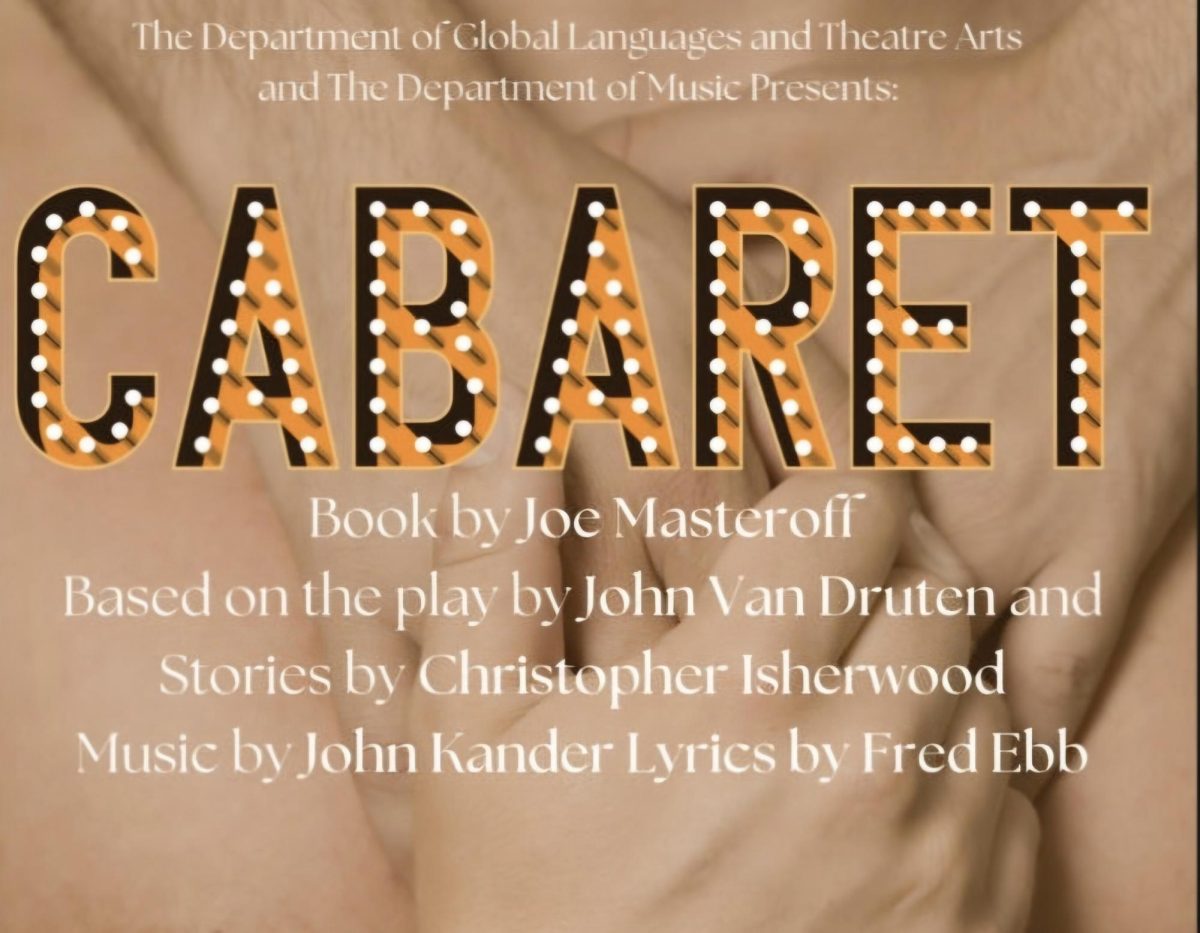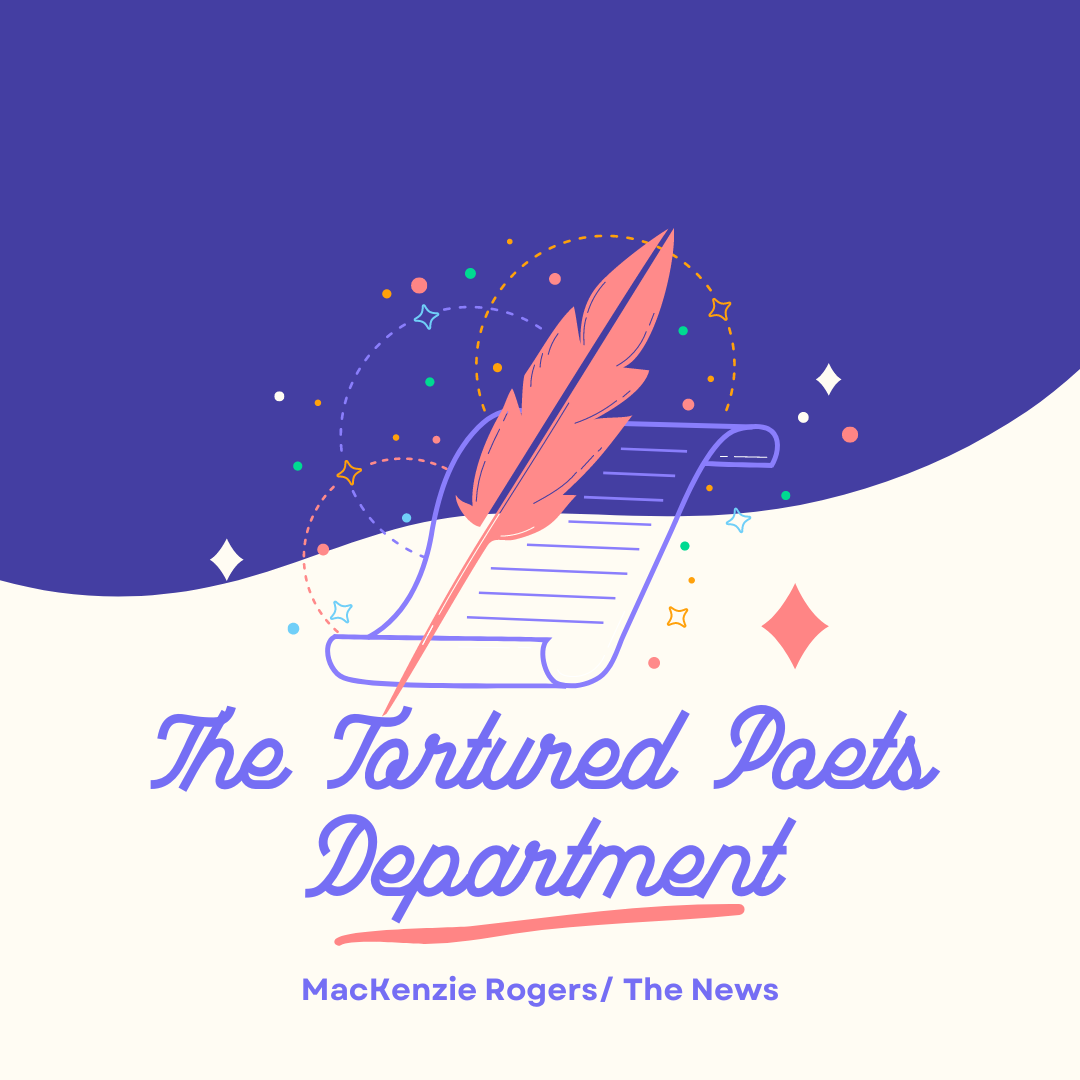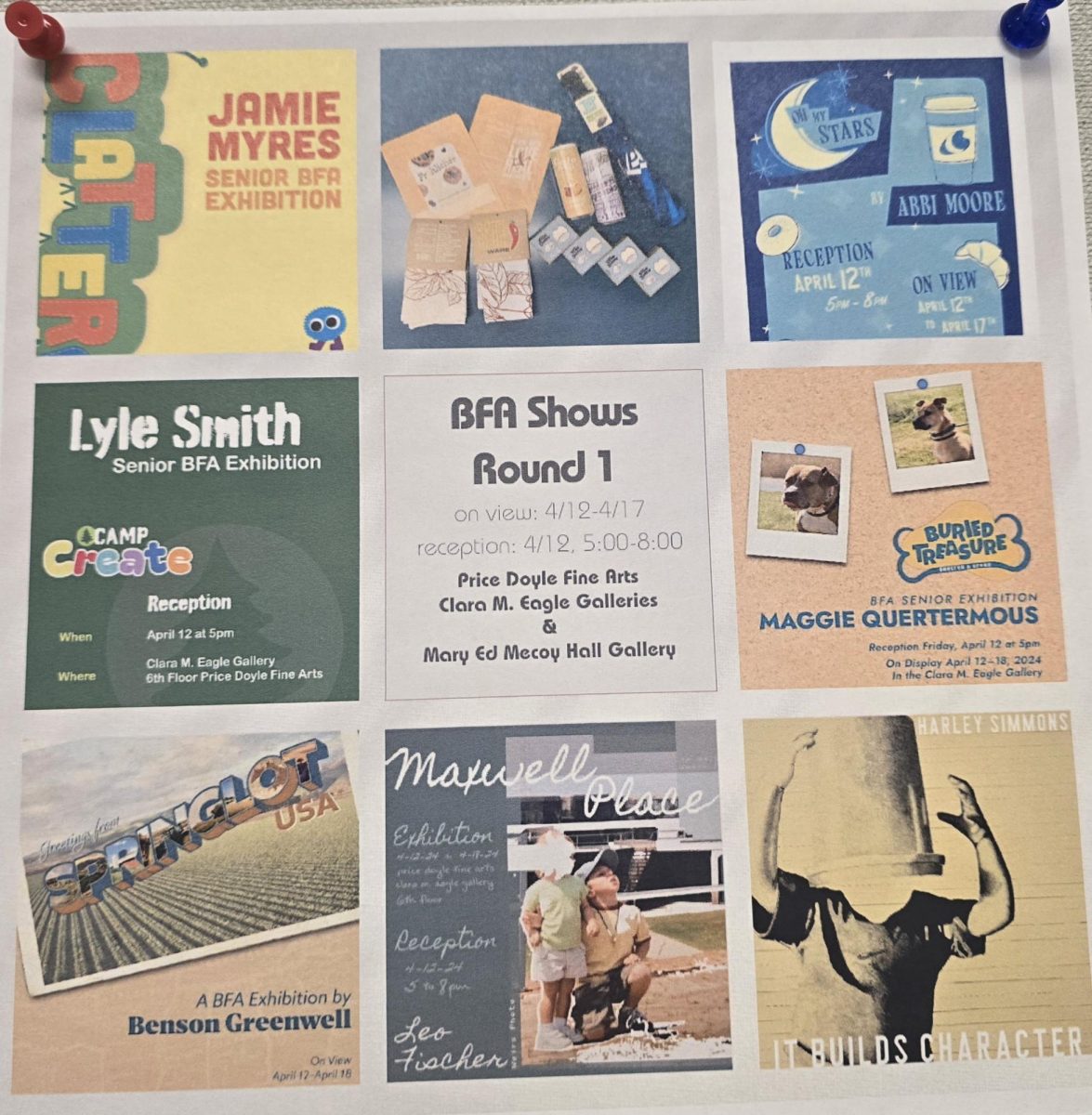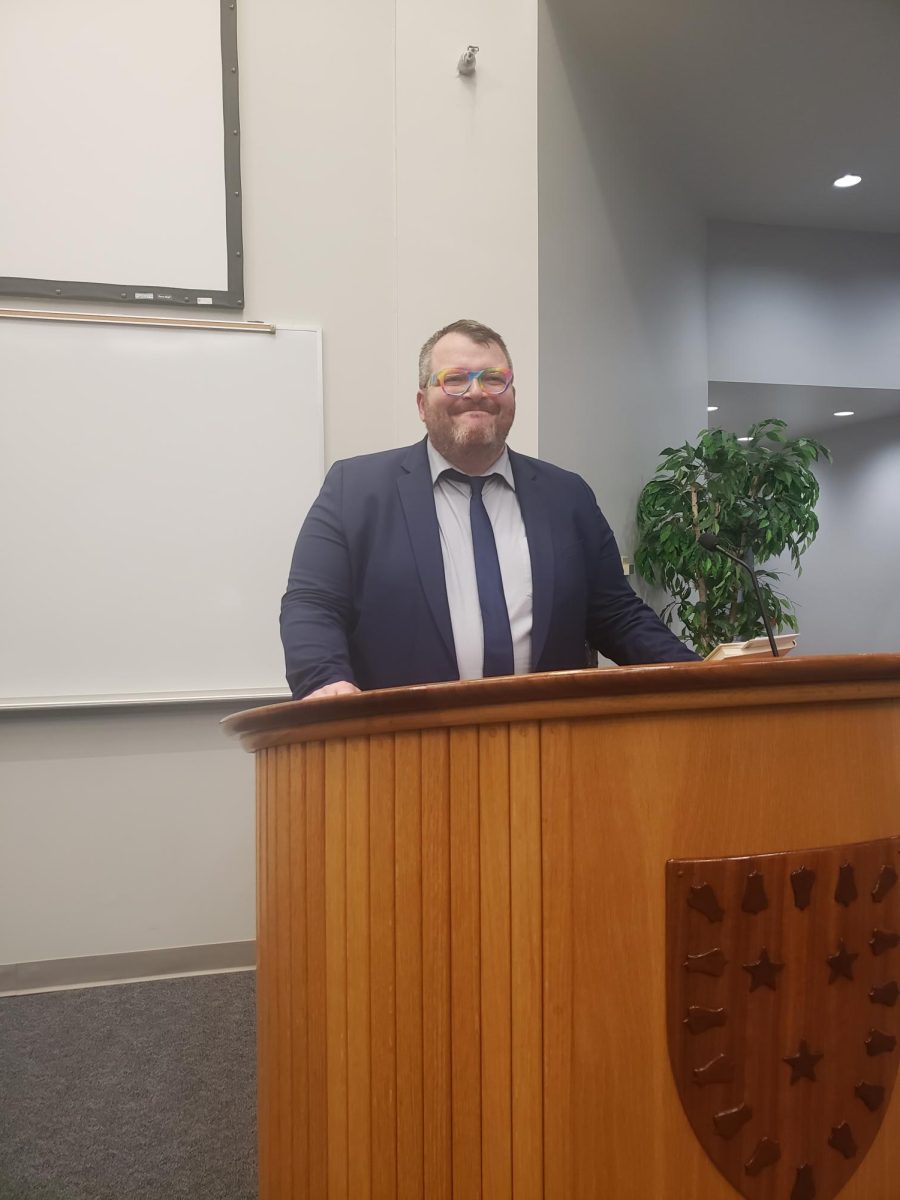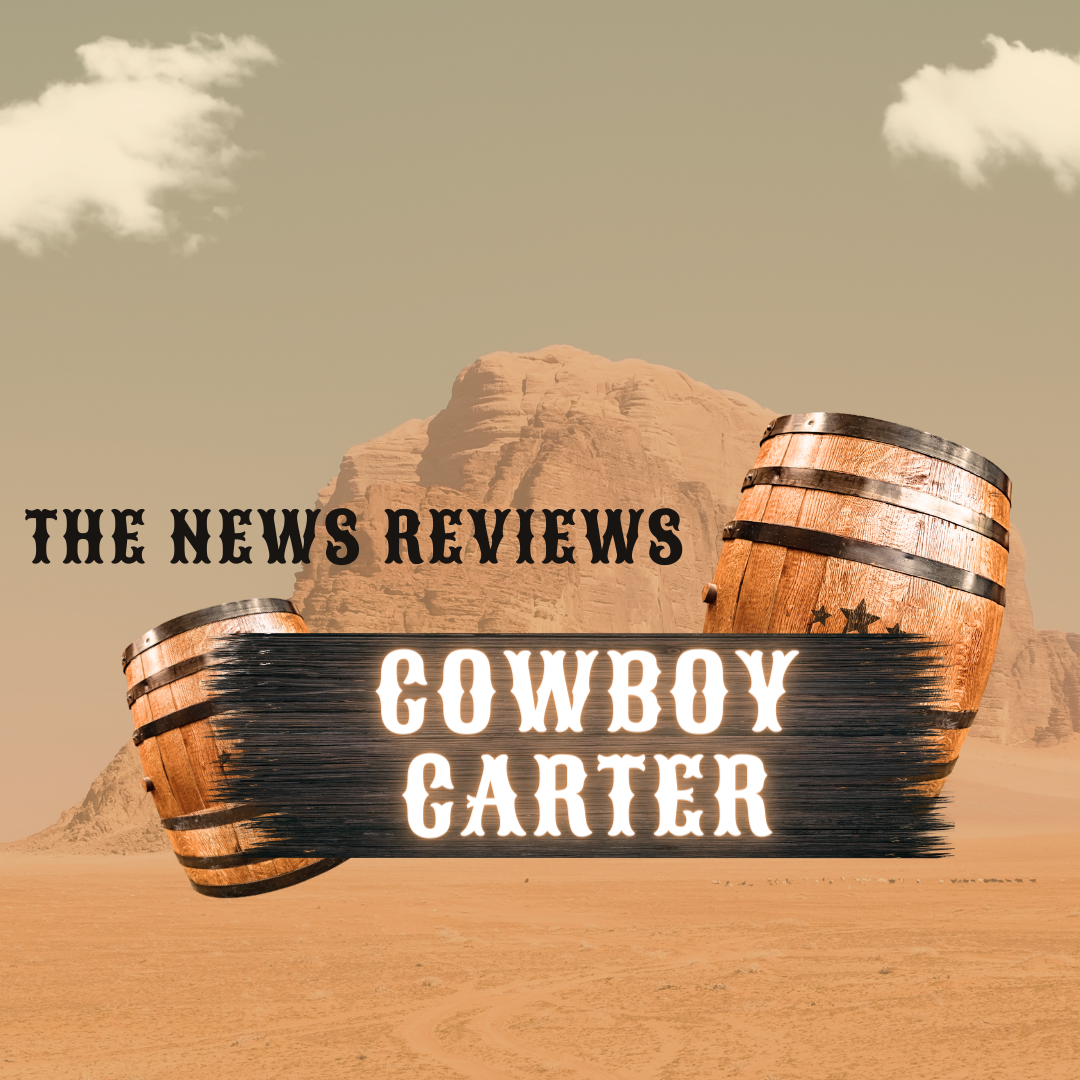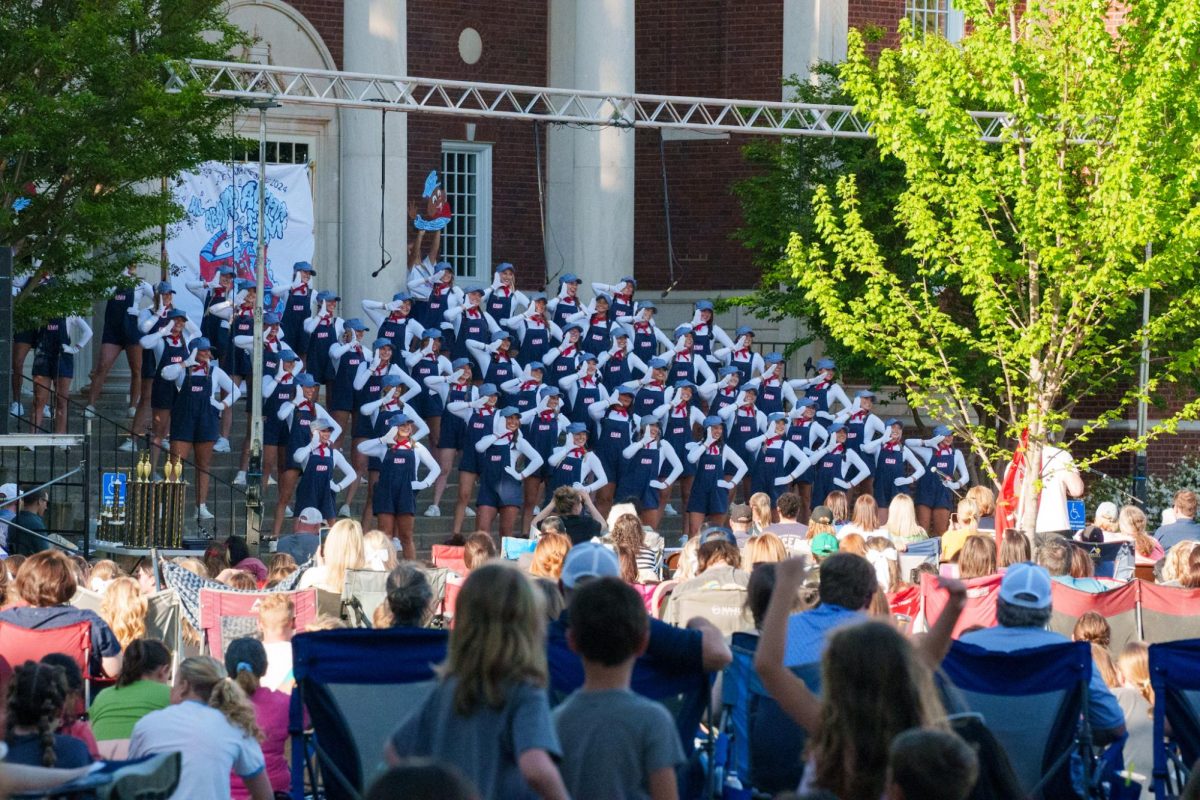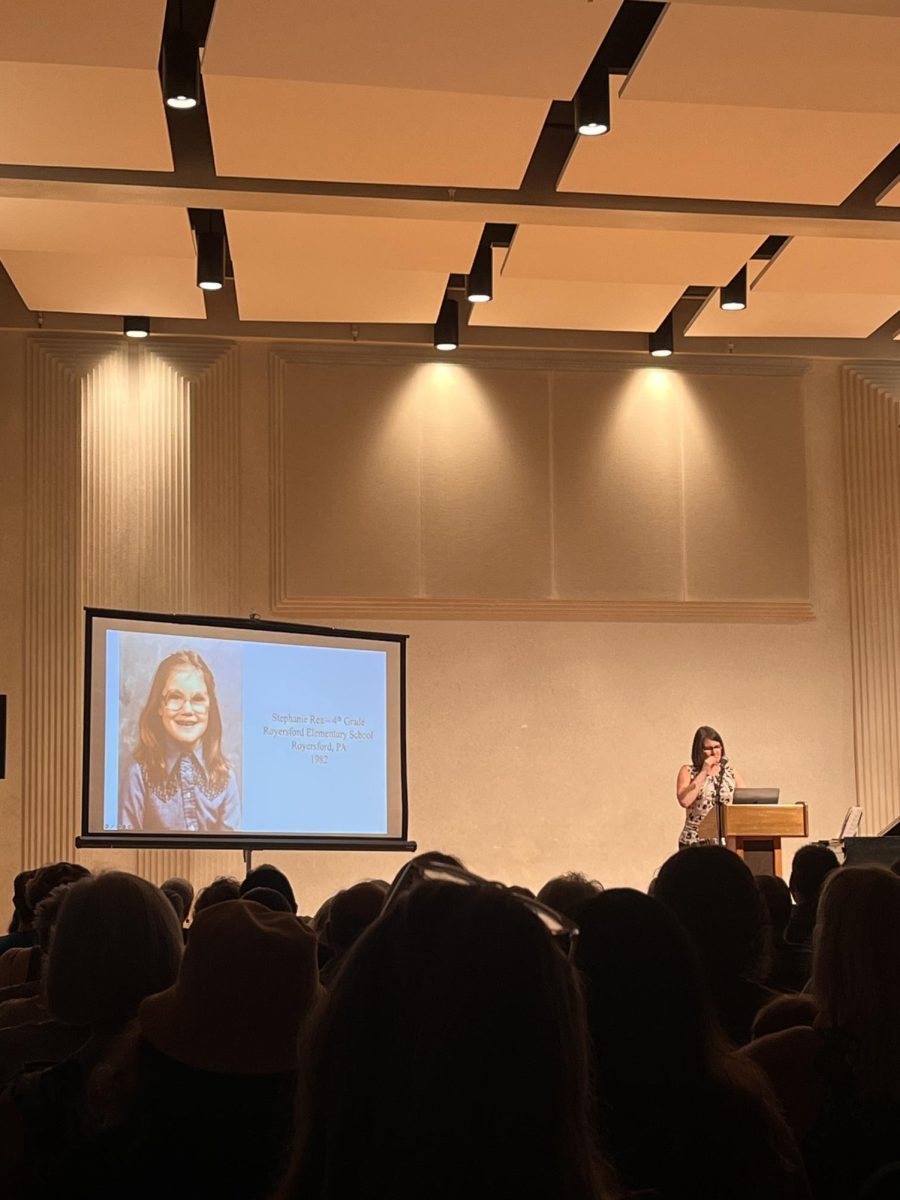Music professor Stephanie Rea performed her one-woman show, “The Next Best Thing,” on Saturday, Aug. 26 in front of a full house as a benefit for WKMS, the local National Public Radio Station operated by Murray State.
The five act performance was described by Rea as a ‘tragicomic origin story.’ Rea utilized a flute medley, with piano accompaniment by Meeyoun Park, to illustrate her upbringing and journey throughout her musical and professional careers.
She began her performance by saying, “If all goes well, you will ride the waves of my introspection before the night is through.”
Many faculty and students of the University enjoyed her performance. The audience fought for seats and many people watched eagerly from the balconies or standing in the back of the room.
“[It is] a quasi one-woman-show of storytelling and flute playing,” Rea said. “It’s a free performance in celebration of and benefit for our local public radio station, WKMS. [These are] stories of my life woven into the context of Public Radio, with flute pieces performed in between stories that move in surprising ways from…lightheartedness to poignancy.”
Each act was filled with theatrical storytelling, explaining her desires for specific career paths, relationships and more. She ended each act by revealing how she didn’t necessarily accomplish those specific dreams but found satisfaction in other outcomes, ending with the punchline, “and I guess that was the next best thing.”
With every narrative, the audience grew more heartbroken for Rea’s younger self, yet even more delighted with what she has become professionally and musically.
Her performance began with a Gary Schocker composition as she told the experience of how she discovered her “need to perform this show.”
Act one revealed how she became unexpectedly infatuated with NPR after a failed relationship and a big move to a new job. After researching the “This American Life” program, she became increasingly fond of Ira Glass, an NPR personality.
“[This American Life] helped me grow up,” she said. “And NPR was like my new boyfriend.”
Although her previous relationship had failed, Ira Glass and listening to NPR were the next best thing she said.
Inspired by Glass and other program hosts, she created her own story during her sabbatical earlier this year and submitted it to This American Life. After submitting her life story to the program, she realized there was more storytelling left in her.
“I found myself opening [my origin story] document again like I couldn’t let it go,” she said. “I wasn’t done with it and it wasn’t done with me.”
She said she realized her love for public radio would be an excellent pairing for her performance, as it would bring more light to WKMS and how it has shaped her life.
Listening to NPR uncovered a desire in her to tell stories.
“If I learn to pay close enough attention, spectacular people with spectacular stories are everywhere,” Rea said.
Her next act began with “Teasing” by Ernesto Köhler as she shared an event from her childhood that impacted the rest of her life.
Rea said a biking accident knocked out her front teeth when she was nine years old, leaving the next 40 years filled with grotesque dental procedures.
Because of her accident, Rea could not play the clarinet in the band like she had hoped since her teeth were not stable enough for the reed. Instead, she settled for “the next best thing”: the flute.
“My accident was the reason I’m a flutist,” she said.
Rea detailed the range of emotions she experienced due to her accident, such as embarrassment, insecurity and perplexity to be dealing with medical needs so long after her accident.
Her comfortingly-honest recollection of events illustrated how growing up with an uncommon medical issue can change the trajectory of one’s life.
Act three continued to explain how this experience traveled with her for decades but offered a potential resolution to her narrative. She encouraged audience members to donate to WKMS or another public radio station.
Her third piece of music was “Salon-Etude” by Johannés Donjon, which has 4 sections. By using an audience volunteer and comedy, she utilized each of these sections to prove a point of why people should donate to WKMS.
“You will have the opportunity to donate if you want to,” she said. “It’s not high pressure.”
In talking to Rea before her performance, she said that asking to donate “would be part of the fun.” Her performance reflected exactly that.
She concluded this act by expressing that, although she may no longer have front teeth, implants are “the next best thing.”
In her fourth act, she revisited her initial passion for the clarinet and performed a “Blue Danube Waltz” duet with Dr. Park; however, this time, Rea was not playing flute–she was playing the clarinet.
Her joy and excitement from finally being able to perform a childhood dream was obvious and the audience was almost as overjoyed as Rea was through overwhelming applause and cheers.
Her long-awaited clarinet performance was the high point of the night and led the crowd to a more resolved conclusion in act five.
The fifth and final act was accompanied by Reichert’s “Melancholic Fantasy,” which ebbed and flowed with the narratives Rea explored throughout the evening.
She concluded by revisiting the main themes of each act. She said she hadn’t heard anything from This American Life about her story submission, and she is still experiencing health problems with her teeth. However, she got her story out to an audience who cared about it.
The audience gave a lengthy standing ovation, which reflected how sincere her performance felt.
Rea’s performance was heartfelt and authentic. She said she has already been contacted to perform it again in Florida and another performance hall in Kentucky.


